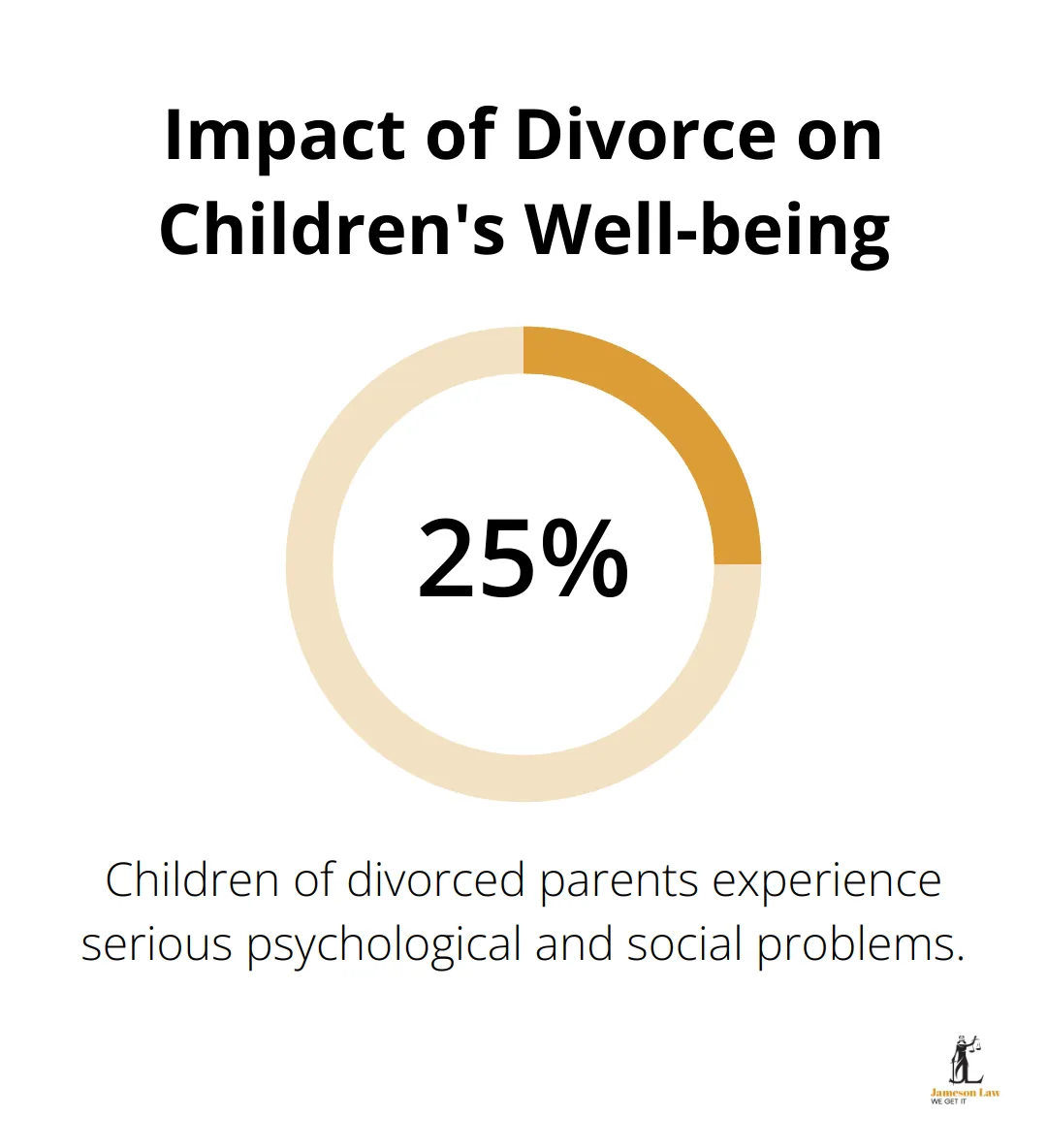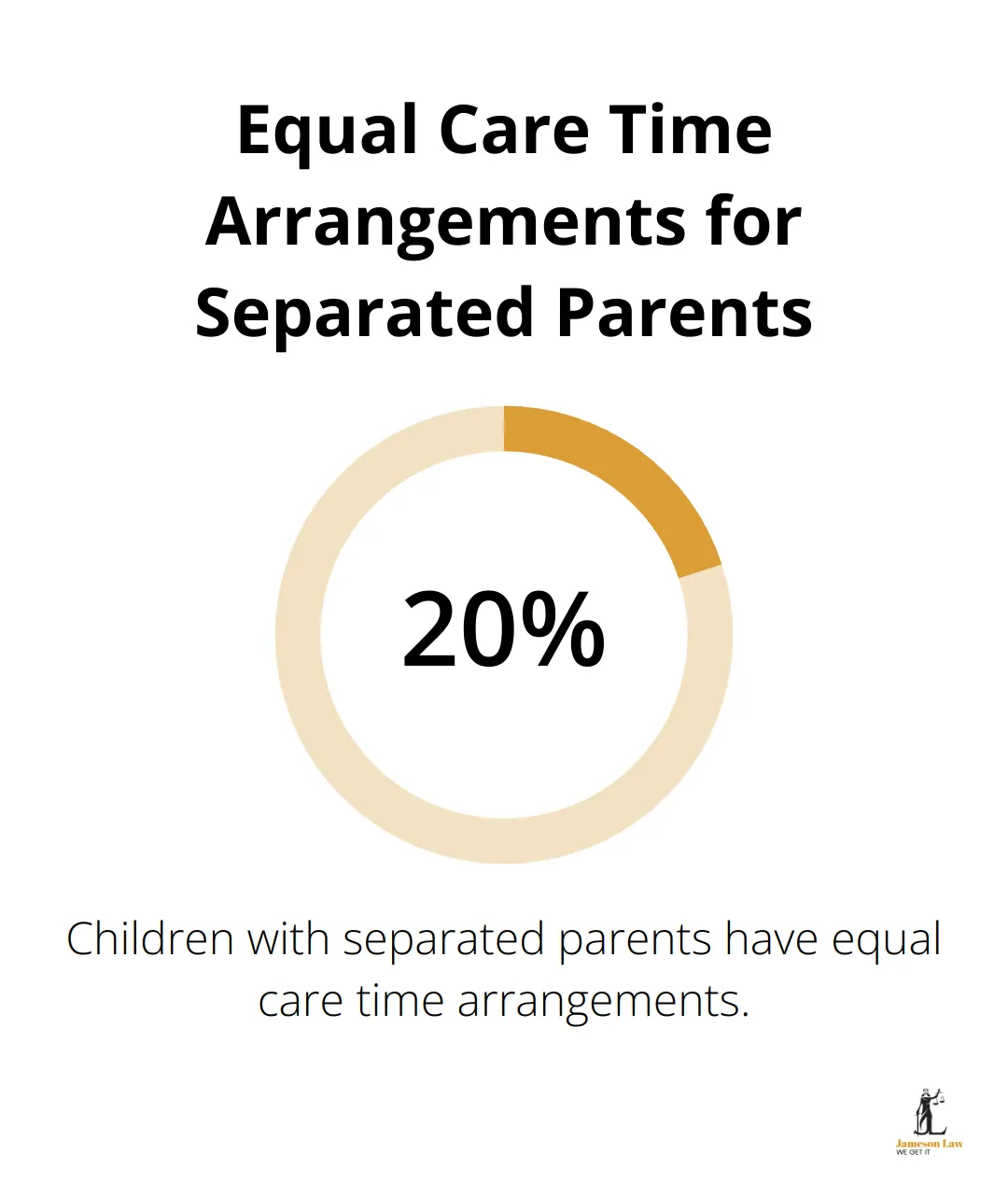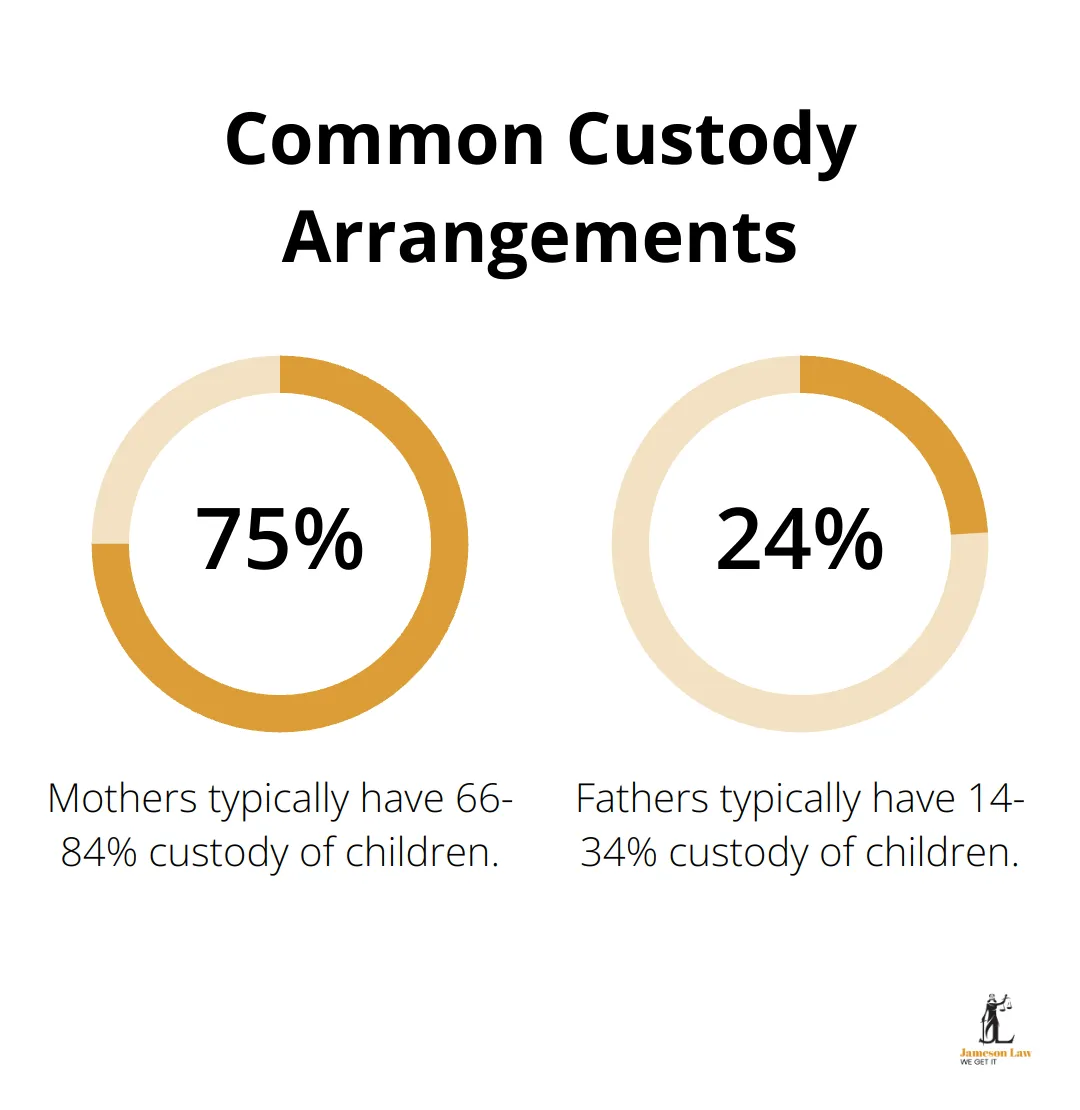At Jameson Law, we understand the critical role that Section 60CC of the Family Law Act plays in determining children’s best interests during family disputes.
This pivotal section guides courts in making decisions that profoundly impact the lives of children and their families.
Our blog post delves into the key principles and considerations outlined in Family Law Act Section 60CC, shedding light on how these factors are weighed and applied in legal proceedings.
What is Section 60CC of the Family Law Act?
The Cornerstone of Australian Family Law
Section 60CC of the Family Law Act 1975 forms the foundation of Australian family law. It provides courts with a framework to determine a child’s best interests during family disputes. This section guides judges in making decisions that significantly impact children’s lives.
Purpose and Significance
The primary objective of Section 60CC is to prioritise children’s welfare in family law cases. It outlines specific factors that courts must consider when deciding on parenting arrangements. This approach helps create a more consistent and fair method to resolve disputes about children.
Key Principles for Determining Children’s Best Interests
Section 60CC establishes several key principles that courts use to assess what’s best for a child. These include:
- The benefit of the child having a meaningful relationship with both parents
- The need to protect the child from physical or psychological harm
Research shows that children with divorced parents have a much higher rate of “serious psychological and social problems” (25%) than children of parents who remain together.

The Court’s Role in Applying Section 60CC
Courts have a significant responsibility to weigh all relevant factors when applying Section 60CC. They must consider evidence presented by parents, expert witnesses, and sometimes even the children themselves.
Impact on Parenting Cases
Understanding Section 60CC is vital for parents involved in family law disputes. It helps them focus on the most relevant aspects of their case and present the strongest possible arguments for their children’s wellbeing.
As we move forward, let’s examine the primary considerations under Section 60CC and how they shape the court’s decision-making process.
How Section 60CC Prioritises Children’s Interests
Two Primary Considerations
Section 60CC of the Family Law Act outlines two primary considerations that courts must weigh when determining a child’s best interests. These considerations form the foundation of parenting decisions in Australian family law.
Meaningful Relationships with Both Parents
The first primary consideration is the benefit to the child of having a meaningful relationship with both parents. This reflects the understanding that children typically benefit from maintaining strong connections with both mother and father, provided it is safe.
It’s important to note that this doesn’t automatically translate to equal time with each parent. The Australian Institute of Family Studies reports that only about 20% of children with separated parents have equal care time arrangements.

Protection from Harm
The second primary consideration is the need to protect children from physical or psychological harm, and from being subjected to (or exposed to) abuse, neglect or family violence.
This consideration has gained increased prominence in recent years. According to the Australian Institute of Health and Welfare (2017), almost one in three victims of hospitalised family violence were from a spouse or domestic partner.
Balancing Safety and Relationships
When these two primary considerations conflict, the court must prioritise the child’s safety. This often leads to difficult decisions, particularly in cases involving family violence or abuse allegations.
The Family Court of Australia emphasises that the best interests of the child are paramount, even if this means limiting contact with one parent. This approach aligns with research showing that exposure to family violence can have long-lasting negative impacts on children’s emotional and psychological wellbeing.
Real-World Application
In practice, these considerations play out in complex ways. Courts must carefully weigh evidence from various sources, including parents, expert witnesses, and sometimes the children themselves. This process ensures that decisions truly reflect what’s best for the child in each unique situation.
Understanding these primary considerations helps parents set realistic expectations and prepare effective arguments for court proceedings. As we explore the additional considerations under Section 60CC, we’ll see how courts build a comprehensive picture of a child’s best interests.
Beyond Primary Factors: Additional Considerations in Child Custody Decisions
Section 60CC of the Family Law Act provides a comprehensive framework for determining a child’s best interests. It extends beyond the two primary considerations to include additional factors that help courts create a fuller picture of each unique family situation.
The Child’s Voice in Court
Courts now recognise the importance of hearing directly from children. The Family Court of Australia considers children’s views alongside their age, maturity, and potential influences. However, this doesn’t mean children make the final decision.
A study by the Australian Institute of Family Studies outlined the importance of making children’s wellbeing a central aspect of the conversations practitioners have with separating parents. This underscores the need for courts to balance children’s desires with other factors affecting their welfare.
Existing Relationships and Practical Realities
Courts examine the nature of the child’s relationships with parents, siblings, and other significant people. This includes an assessment of each parent’s involvement in the child’s life before separation.
Practical considerations also play a role. The court weighs the difficulty and expense of a child spending time with each parent. This is particularly relevant in cases of relocation or where parents live far apart.
Parental Capacity and Stability
A critical factor is each parent’s ability to provide for the child’s needs. This extends beyond financial support to include emotional availability, maintaining routines, and fostering the child’s development. Courts look for evidence of parental engagement in education, healthcare, and extracurricular activities.
The potential impact of changes on the child is another key consideration. Courts often prioritise stability, especially for younger children. This doesn’t mean change is always avoided, but courts carefully assess how proposed arrangements might affect a child’s wellbeing.
Family Violence: A Top Priority
Family violence considerations have gained increased prominence in recent years. Courts take a broad view of family violence, including physical, emotional, and financial abuse. The safety of the child and the primary caregiver is paramount. The Family Law Amendment Act 2023 introduces new criteria that the court must consider in determining what is in the best interests of the child.
The most common arrangement is that the mother takes 66-84% custody of the child or children, while the father takes 14-34%. This underscores the importance of thorough assessment in cases involving custody arrangements.

Australian family courts strive to make decisions that truly serve each child’s best interests through this wide range of factors. While challenging, this holistic approach aims to create arrangements that support children’s wellbeing and development in the long term.
Final Thoughts
Section 60CC of the Family Law Act guides Australian courts in determining a child’s best interests during family disputes. This section balances the benefits of meaningful relationships with both parents against the need to protect children from harm. Courts consider additional factors to create a comprehensive picture of each family’s unique circumstances.
Families often find it challenging to navigate the intricacies of Family Law Act Section 60CC. Jameson Law specialises in helping families understand and navigate these complexities in parenting matters. Our team of experienced lawyers provides tailored advice and representation to ensure effective case presentation.
Family law matters involving children are emotionally charged and legally complex. Jameson Law supports families through these challenging times with our understanding of family law and commitment to achieving the best outcomes. We provide clarity, guidance, and strong advocacy to help parents navigate the legal system while prioritising their children’s welfare.













